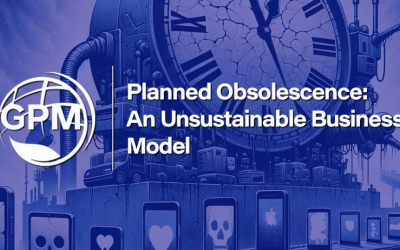When Money and Corporate Profit Become Irrelevant: A Vision of Resource-Based Living
Imagine a group of people stranded on an island. Among their possessions are gold, diamonds, and wads of cash. Yet, without access to food, water, or shelter, their wealth holds no value. What matters in this scenario are the island’s resources and the ingenuity to utilize them. This simple thought experiment highlights a profound truth: money is irrelevant in the face of survival unless it is tied to the control of scarce resources.

In the broader context of society, this principle reveals an even deeper issue: our dependence on money and the corporate profit system that perpetuates it. Both are constructs designed to mediate scarcity. But what if we could reimagine an economy where neither money nor profit was necessary?
The Illusion of Wealth in a Scarcity-Driven System
Money exists because we’ve agreed to use it as a medium for distributing limited resources. It is not a natural resource, nor does it represent one. Instead, it’s a social convention, a placeholder for value in a system where scarcity governs access. Corporate profit, likewise, thrives on the manipulation of scarcity—whether real or artificial. Companies profit by creating demand for goods, limiting supply, or both, ensuring that resources flow not to those in need, but to those who can pay.
Air and water exemplify the absurdity of this model. In abundance, they cannot be commodified or sold, despite their essential value to life. But when corporations step in to bottle water or control access to clean air, these once-free resources become monetized under the guise of scarcity. The result is a system that values profit over humanity’s collective well-being.

Replacing Money and Profit with Resource Management
A resource-based economy (RBE) offers a compelling alternative. By focusing on the equitable and intelligent management of resources, it eliminates the need for money and the profit motive altogether. In an RBE:
- Resources Are Shared
- All resources are treated as the common heritage of humanity. There is no private ownership of resources; instead, they are managed collectively to meet everyone’s needs.
- Technology Optimizes Distribution
- Advanced technologies and data systems ensure that resources are produced and distributed efficiently, eliminating waste and redundancy.
- Production Is Need-Based, Not Profit-Driven
- Without the profit motive, production shifts from creating excess to meet financial goals to fulfilling the actual needs of communities.
- Abundance Eliminates Scarcity
- By prioritizing sustainable practices and innovative solutions, an RBE creates abundance, rendering money and profit obsolete.
The Unnecessary Burden of Corporate Profit
Corporations are often seen as drivers of innovation and economic growth. However, the profit motive frequently leads to inefficiencies and harm:
- Artificial Scarcity: To maintain high prices, corporations may limit the availability of essential goods, from housing to medicine.
- Environmental Degradation: Driven by the need to maximize profits, corporations exploit natural resources unsustainably, leaving a trail of environmental destruction.
- Inequality: Wealth generated by corporate profits is rarely equitably distributed, exacerbating social divides.
In a resource-based economy, these issues disappear. With no need to turn a profit, resource management prioritizes sustainability, equality, and human well-being.
A World Without Money or Profit
Picture a world where access to clean water, nutritious food, housing, and healthcare is a given—not because you can afford them, but because they are produced and distributed for the benefit of all. Envision communities collaborating to solve problems, freed from the competitive constraints of capitalism. Imagine a society where innovation flourishes, not to create profit, but to improve quality of life.
In this world, money is irrelevant, and corporate profit is unnecessary. True wealth lies in the resources we share and the systems we create to ensure their equitable use. By shifting from a monetary economy to one based on resources, we can achieve sustainability, equality, and a higher standard of living for all.
The Time to Rethink Is Now
The systems of money and profit have outlived their usefulness. They were created to mediate scarcity, but they now perpetuate it. A resource-based economy offers a pathway to transcend these limitations, building a society where survival and prosperity are guaranteed for all.
The future doesn’t have to be governed by the constraints of money or the drive for profit. It can be one of abundance, fairness, and shared progress—if we are willing to reimagine what is truly possible.
We CAN do better
Flip the Political Script
Our political system is built like a pyramid. At the top sits the federal government, wielding the most power and resources. Beneath it lie provincial or state governments, and at the bottom are local governments—municipalities, cities, and towns. While this structure...
The Harm of the Powerful: A spotlight on corporate social irresponsibility and corporate crimes
The Harm of the Powerful: A spotlight on corporate social irresponsibility and corporate crimes Original Article by Rafael Alcadipani We see the headlines: Vale dam collapses, killing nearly 300 people; BP’s oil well explodes in the Gulf of Mexico; Lehman debacle...
Resource Based Economy
Embracing a Resource-Based Economy: A Vision for a Sustainable Future In a world grappling with inequality, resource depletion, and environmental crises, a Resource-Based Economy (RBE) offers a transformative solution. Unlike traditional monetary systems, an RBE...
Planned Obsolescence: An Unsustainable Business Model
Planned Obsolescence: An Unsustainable Business Model March 13, 2024 by Michael Pace Original Article Let’s start by defining some terms. Planned Obsolescence involves designing products to quickly break or become obsolete in the short to mid-term, with the general...
Time Bucks
The Future of Trade: An Open-Sourced Labour Exchange Economy Based on Time Imagine a world where your time is the primary currency. Instead of relying on fiat money, you trade your hours of labour directly for goods and services. This concept, often referred to as a...
MIT study explains why laws are written in an incomprehensible style
The convoluted “legalese” used in legal documents conveys a special sense of authority, and even non-lawyers have learned to wield it. Anne Trafton | MIT News Publication Date: August 19, 2024 Legal documents are notoriously difficult to understand, even for...
Repair Cafe
Planned obsolescence has slowly but surely crept into our consumer-driven society. Repair Cafés are a great way to combat wasteful built-it policy while simultaneously cleaning up our environment. Items you purchase with your hard earned cash don't need to end up in...
Release the Patents!
Patents: Protecting Progress or Stifling Innovation?“Patents are important because they help protect your invention by giving you the exclusive right to stop others from copying, manufacturing, selling, or importing your invention without your permission.” –...
Re-write the Laws
Living in Harmony with Natural Law: A Blueprint for Freedom and Order When human beings live in accordance with Natural Law, they attain and sustain freedom, fostering a society rooted in order and harmony. Conversely, when human beings oppose Natural Law, they...
Make Education Free and Available to Everyone
Imagine a world where education is not a privilege but a right. A world where every individual has the opportunity to pursue their passions without the weight of financial burden. In this fully educated society, we would witness a remarkable transformation in how...
Ban interest
The Case Against Interest: A Call to End Usury and Liberate Society.The practice of charging interest on loans—usury—has long been a tool of exploitation, enriching a select few at the expense of the many. While often cloaked in legality, the system enabling...
Bee Bombs
Bee Bombs are a great solution to help save the bees and other essential pollinators from extinction. Best of all, anyone can do it! When Bee bombs explode, they disperse wildflowers seeds that, once planted, will produce a beautiful plot of flowers for pollinators to...











